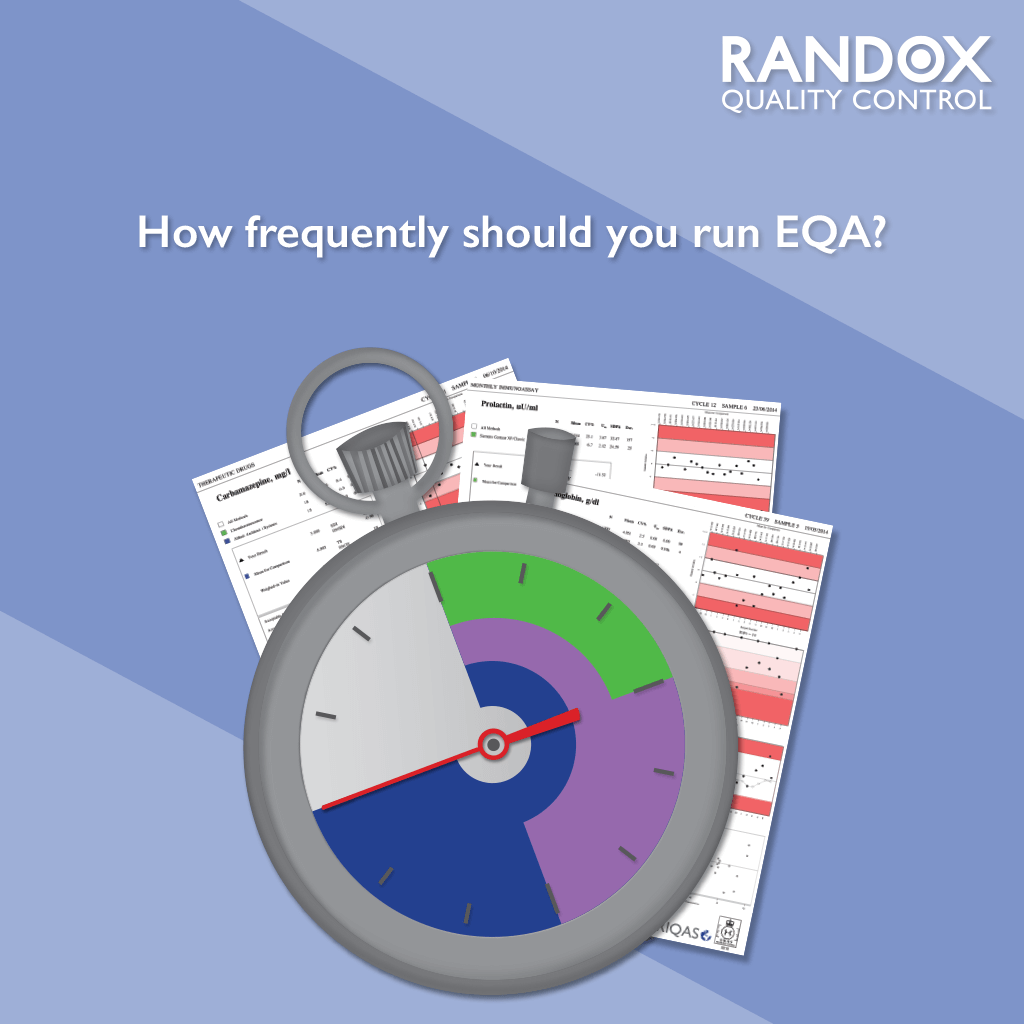How frequently should you run EQA?

There is much debate among clinical laboratories when discussing this common question. With some schemes offering testing as little as 2 times per year, it raises the question, is this really enough?
How frequently an EQA scheme is run will often be dependent on several aspects. Factors such as the diagnostic error rate, number of tests undertaken, experience and turnover of technical staff, and the known stability/instability of the analyte in question should be considered and will all contribute to determine the desired frequency of EQA.
Each EQA programme will vary, where one area, for instance Chemistry, may require bi-weekly testing, another, such as Serology, may only need to be tested every 3 months. Although there is variation between schemes, the benefits of testing more frequently unquestionably outweighs the costs of not testing frequently enough.
Issues with infrequent testing?
If your EQA provider offers infrequent testing, there is likely to be a lengthy period of uncertainty where errors could be happening in the laboratory and consequently incorrect results being released. The outcome of this could be damaging to both patients and laboratories, with credibility and trust in results likely to come under scrutiny. For these reasons, having an infrequent EQA scheme could cause harm to your laboratory and reduce confidence in your test results.
Why should you use a frequent EQA scheme?
To ensure the previously mentioned errors do not occur, laboratories should participate in frequent EQA schemes to guarantee that if incorrect test results do arise, then they will be detected and rectified immediately.
As preventative/corrective actions can be taken sooner through frequent EQA schemes, you will have increased confidence in your test systems performance and may reduce the need for expensive retests. Being able to pinpoint when an error occurred will be much simpler if you are only looking back a matter of weeks or a couple months, as opposed to if you are looking back over a longer period such as 4 to 6 months.
The ability to implement corrective actions sooner and with less disruptions to the lab will help lead to both time and cost savings in the future.
What can Randox Quality Control offer?
Randox International Quality Assessment Scheme (RIQAS), offers bi-weekly, monthly and quarterly reporting options* designed to assist with the early identification of laboratory errors. Not only will RIQAS provide you with extra confidence in test system accuracy, but with 32 flexible programmes you could also make significant cost and time savings through consolidation.
With more than 40,000 participants in 124 countries, RIQAS is the largest international EQA scheme on the market and offers laboratories around the world assurances that the results they are releasing are accurate and reliable. Our many features include; the ability to register up to 5 instruments per programme at no extra cost, easy to read reports, internationally accredited programmes and rapid report turnaround. Why don’t you contact us today and find out how we can support you in maintaining quality control in your laboratory?
*Programme Specific
